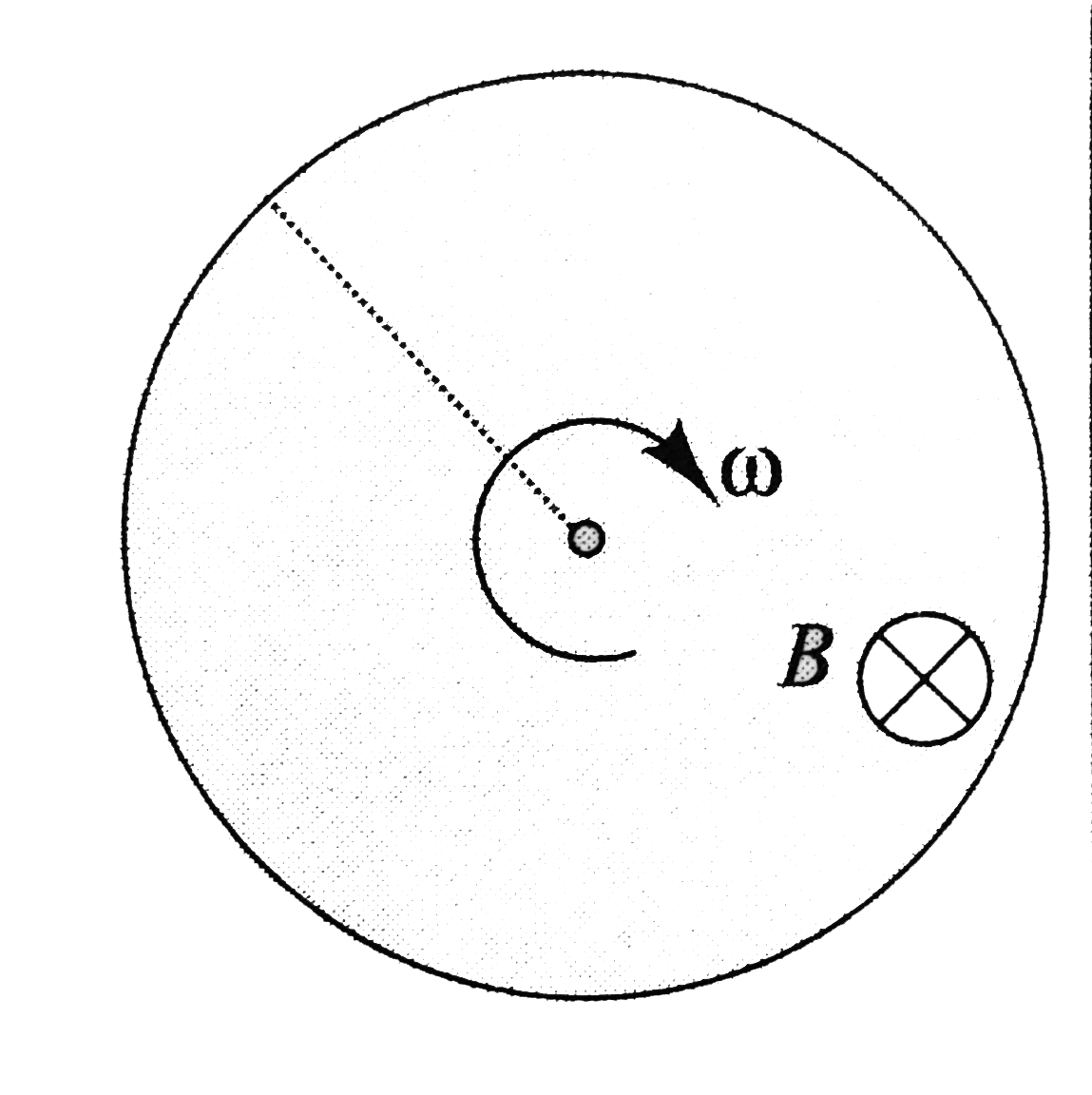A 1m long calculating rod rotates with an angular frequency of 400 rad s−1 an axis normal to the rod passing through its one one end. The other end of the rod is contact with a circular metallic ring. A constant magnetic field of 0.5 T parallel to the axis everywhere. Calculate the e.m.f. developed between the centre and the ring.
Length of the rod, l = 1 m
Angular frequency,ω=400rad/s
Magnetic field strength, B = 0.5 T
One end of the rod has zero linear velocity, while the other end has a linear velocity of Iω
Average linear velocity of the rod, v=lω+02=lω2
Emf developed between the centre and the ring,
e=Blv=Bl(lω2)=Bl2ω2
=0.5×(1)2×4002=100V
Hence, the emf developed between the centre and the ring is 100 V.
Topper's Solved these Questions
Similar Questions
A 1.0 m long metallic rod is rotated with an angular frequency of 400 rad s1 about an axis normal to the rod passing through its one end. The other end of the rod is in contact with a circular metallic ring. A constant and uniform magnetic field of 0.5 T parallel to the axis exists everywhere. Calculate the emf developed between the centre and the ring.
View SolutionA metallic rod of 1 m length is rotated with a frequency of 50 rev/s, with on end hinged at the centre and the other end at the circumference of a circular metallic ring of radius 1 m, about an axis passing through the centre and perpendicular at to the plane of the ring. A constant uniform magnetic field of 1 T parallel to the axis is persent eveywhere. what is the e.m.f. between the centre and the metallic ring?
View Solution
Knowledge Check
A 2 m long metallic rod rotates with an angular frequency 200rads−1 about on axis normal to the rod passing through its one end. The other end of the rod is in contact with a circular metallic ring. A constant magnetic field of 0.5T parallel to axis exists everywhere. The emf developed between the centre and the ring is
A100VB200VC300VD400VA rod of length l is rotated with angular speed ω about an axis passing through the centre of rod and perpendicular to its length. A uniform magnetic field B is applied parallel to the axis of rotation, Potential difference developed between the ends of the rod is
ABlω22BBl(ω2)CBlω28DZeroA rod of length 20 cm is rotating with angular speed of 100 rps in a magnetic field of strength 0.5 T about it’s one end . What is the potential difference betweet two ends of the rod :
A2.28VB4.28VC6.28VD2.5V
A metallic rod of length 'I' is rotated with angular frequency of 'ω' with one end hinged at the centre and the other end at the circumference of a circular metallic ring of radius 'l', about an axis passing through its centre and perpendicular to the plane of ring. A constant and uniform magnetic field B parallel to the axis is present everywhere. Deduce the expression for the emf between the centre and the metallic ring.
View SolutionA metallic rod of 'L' length is rotated with angular frequency of 'w' with one end hinged at the centre and the other end at the circumference of a circular metallic ring of radius L, about an axis passing through the centre and perpendicular to the plane of the ring. A constant and uniform magnetic field B parallel to the axis is present everywhere. Deduce the expression for the emf between the centre and the metallic ring.
View SolutionA ring rotates with angular velocity ω about an axis perpendicula to the plane of the ring passing through the center of the ring (Fig. 3.77). A constant magnetic field B exists parallel to the axis. Find the emf induced in the ring.

View SolutionA metallic rod of length 'I' is rotated with a frequency with one end hinged at the center and the other end at the circumference of a circular metallic ring of radius r , about an axis passing through the centre and perpendicular to the plane of the ring. A constant uniform magnetic field B parallel to the axis is present everywhere . Using Lorentz force, explain how emf is induced between the centre and the metallic ring and hence obtained the expression for it.
View SolutionA metallic rod of length 'l' is rotated with a frequency v with one end hinged at the centre and the other end at the circumference of a circular metallic ring of radius r, about an axis passing through the centre and perpendicular to the plane of the ring. A constant uniform magnetic field B parallel to the axis is present every where. Using Lorentz force, explain how emf is induced between the centre and the metallic ring and hence obtain the expression for it.
View Solution
